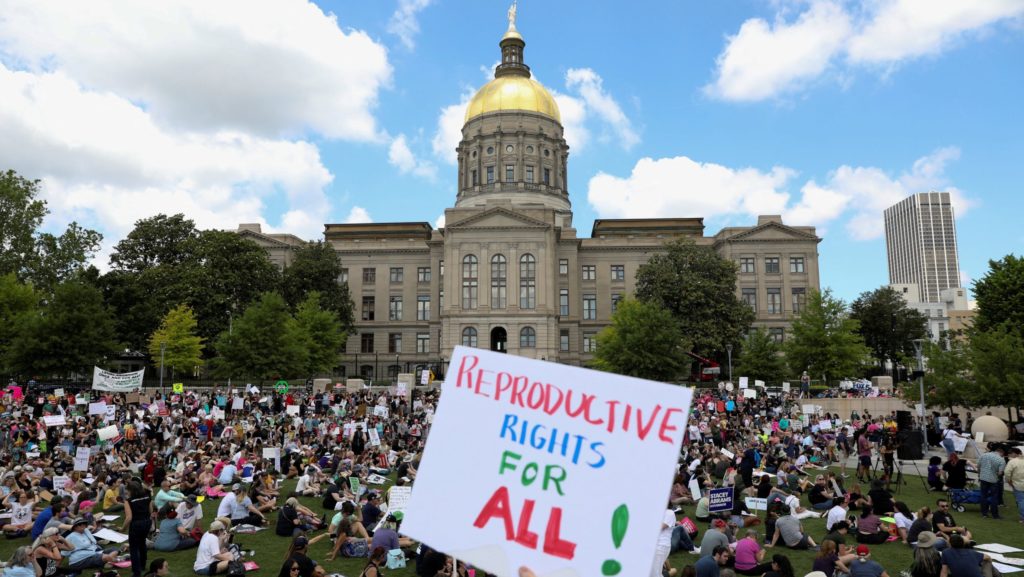The Georgia Supreme Court temporarily reinstated Oct. 7 the state's six-week abortion ban while it reviews an appeal of a previous lower court ruling that had struck down the law.
Georgia's so-called "heartbeat law" on abortion, which prohibits most abortions after six weeks, went into effect after Roe v. Wade was overturned in 2022. It has been the subject of litigation after opponents filed suit shortly after its passage.
Previously, Judge Robert McBurney of Superior Court of Fulton County in Atlanta ruled Sept. 30 that Georgia could no longer enforce the six-week law, permitting abortions in Georgia until about 22 weeks of pregnancy.
"A review of our higher courts' interpretations of 'liberty' demonstrates that liberty in Georgia includes in its meaning, in its protections, and in its bundle of rights the power of a woman to control her own body, to decide what happens to it and in it, and to reject state interference with her healthcare choices," McBurney wrote in that 26-page ruling.
The state of Georgia appealed, and the state's highest court found the law is enforceable while it considers the state's appeal.
The legislation, the LIFE Act, prohibits, with some exceptions, abortion after fetal cardiac activity can be detected. The law was signed by Gov. Brian Kemp in 2019, but it did not go into effect immediately because Roe v. Wade was still in place at the time it was passed.
In a statement, Andrea Young, executive director of the ACLU of Georgia, said, "Elected officials in our state continue their disrespect of Georgia women, treating our bodies as state-owned property. We will persist, using all lawful means to restore dignity, full citizenship and a right to privacy for Georgia's women."
But Susan B. Anthony Pro-Life America, which works to elect pro-life candidates to public office, wrote on X, formerly Twitter, "Georgia law never prevents a doctor from providing life-saving care in a medical emergency."
The Catholic Church teaches that all human life is sacred from conception to natural death, and as such, opposes direct abortion. After the Dobbs decision, church officials in the U.S. have reiterated the church's concern for both mother and child, and it has called for strengthening available support for people living in poverty or other causes that can push women toward having an abortion.

